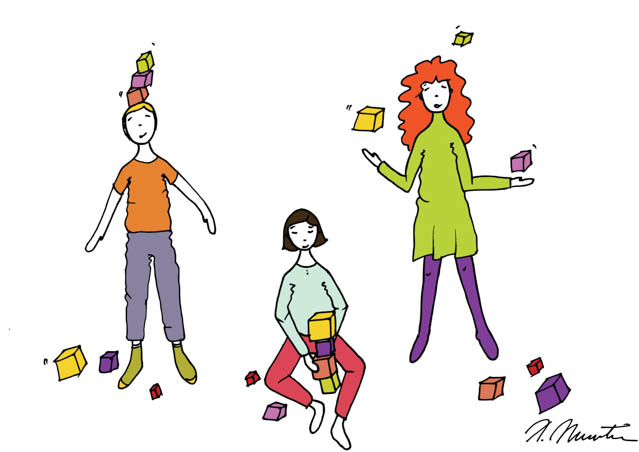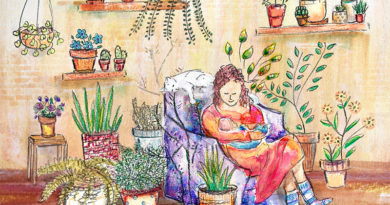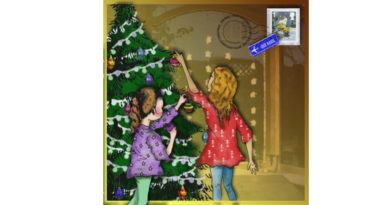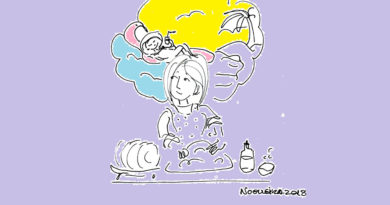Home Cred
A Dutch friend of mine just recently moved back to Holland after living in Switzerland for fifteen years. The first thing she mentioned was how wonderful it was to be received and welcomed by her new neighbours with flowers. Immediately she felt at home. When I visited her last weekend we talked a lot about how she had never really felt at home in Switzerland and how she can’t really understand why. The phone rang and another old friend who’d heard she was back called to say she would pop by later.
“How lovely,” she smiled.
Now the question here is not whether the Dutch are friendlier than the Swiss. (Although there is scope for change on the social aptitude scale in Switzerland, for sure.) But I think there is more. It also has to do with the fact that she has ties there, the language, friends, the food. In fact the first thing I did when I arrived was run to the Albert Hejn supermarket and stock up on dropjes (liquorice), pink cakes and krentenbollen (raisin buns), all of which took me back to my youth – I also feel very much like Holland is my home, having spent ten of the most vital growing-up years there.
The idea of natural in a cultural sense is, of course, determined by, well, the culture, as most of us have experienced when travelling abroad. And it is this prism of ideas and concepts which are fascinating, at the same time – I used to love watching and learning about other people and how they live their everyday lives when we moved to a new country: in Oman the lovely family of our gardener Musa invited us into their tent, where we sat and drank coffee that Musa poured from “way up high,” as I remember it. In Spain our housekeeper taught me my first flamenco moves, and her husband introduced me to bullfighting. I learned from an early age that there is always another way of doing something. Even though that is sometimes easy to forget.
What surprised me is how confused this was to become in my own family. With my own kids I assumed they would learn how to do things, how to behave, etc., from me. Of course, I knew that there would be influences coming from their friends and from school too, but I wasn’t aware of how much that would be. Just the fact that I grew up always having to juggle my parents’ culture and that of my friends, as well as the country I happened to be living in and then find my own way round it all, gave me a different starting point. My own children have lived in one place all their lives and only heard stories of “other ways” through my reactions to things. In fact, I’ve found that it has wedged gaps between my children and myself.
These gaps aren’t immediately visible, but they spring at me at the strangest of moments.
For example, my youngest daughter, aged nine, has started to walk Sherlock, our beagle, so I suggested that she should walk around and ring at any of her friends’ doors to see if they would want to join her. Surprised, she insisted she couldn’t just pop by unannounced! As if this was the oddest thing I’d suggested in a long time! She only tried it out once I’d talked to her friend’s mother, who then explicitly told my daughter that it would be fine. I couldn’t believe that a daughter of mine could be so “Swiss”!
Similar looks of disbelief or annoyance arise when it comes to punctuality – my children are always getting at me to be “on time.” Now, I am aware that my difficulty with time (which admittedly may or may not be something I picked up along the way, but I did spend some time in South America where it is considered rude to arrive any time before thirty minutes after the designated time – I’m talking for social occasions here, not school or work, of course – but the general lax attitude towards time is quite contrary to the Swiss one.
And when we travel outside of Switzerland, my middle daughter, aged thirteen, is amazed to experience the truth behind my claim that people elsewhere, even in big cities like London, are so friendly. It was at the moment she exclaimed:
“Mummy, they’re all so nice here and helpful,” that I saw three pairs of gleaming eyes gaze at me intently, and I recognised the look. It was one of recognition, of credence. Now they seemed to understand what I was always going on about at home. I had gained some “home cred(ibility).” It was then that I realised that, for me, the idea of what is “natural” is something that needs to be experienced firsthand. It is not something that can be passed on to my kids without their having the experience for themselves. Once we have this experience, I guess we can then decide which sort of “normal” we would like to settle down with and which sort of “normal” we can choose to ignore. Maybe this could be considered a third-culture privilege.
By Karin Mohler
Karin Mohler is a former expat who has settled down in her native Switzerland after a childhood abroad. She is challenged daily with balancing the peculiarities she picked up on her travels and integrating them into daily life in what is supposed to be her homeland. Her three children aged 15, 13 and 9, help her bridge the gap in understanding the culture she is now living in. Failing that, she gains insight and inspiration from the book Third Culture Kids: Growing Up Among Worlds by David C. Pollock and Ruth Van Reken (2009).
Illustration by Laura Munteanu
Laura has studied Journalism and Advertising, and has been working as a journalist and an illustrator. She has been illustrating for magazines, websites, charity and diverse campaigns. She lives in Zurich with her husband and eight-year-old daughter.





Fantastic article….
Hi Charan, Thanks for the feedback 🙂